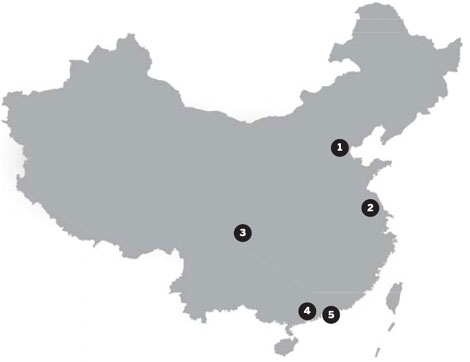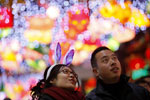Technology
IP Scene
Updated: 2011-02-16 07:52
(China Daily)

1. Beijing
Support for software and circuits
The State Council unveiled a series of policies last week to further stimulate growth in the software industry following a first batch issued in 2000.
The new policies cover taxes, financing, research, foreign trade, human resources, intellectual property and marketing.
Industrial software and high-end chips, as well as materials, systems and technologies used in integrated circuits, are expected to benefit most from the policies, analysts said.
The policies also encourage exports of software, circuits and information services.
As major Chinese companies involved in circuits and testing focus on overseas markets, the new policies are seen as a boost for their expansion abroad.
National award withdrawn for fraud
The Ministry of Science and Technology recently announced it has withdrawn a national technology award because of academic fraud for the first time in the annual award's history.
The revoked National Office for Science and Technology Award was granted in 2005 to a scroll compressor research program headed by former professor Li Liansheng of the School of Energy and Power Engineering at Xi'an Jiaotong University.
Li was later found to have plagiarized and fabricated data in academic papers used in the award-winning program, according to the announcement. His certificate and prize money were then recalled.
In 2007, six professors at Xi'an Jiaotong University accused Li of academic dishonesty. He was finally fired last year.
2. Jiangsu
Tops in applications and patents
The eastern province topped the nation in applications and patents granted in 2010 with more than 235,000 filings - about 21.3 percent of the nation's total -138,000 of which were granted, an increase of 58.54 percent over 2009.
Nearly 52 percent of the patents were from companies. Ten of the province's firms now each have more than 500 patents.
3. Sichuan
World's largest hydropower turbines
Installation began on world's largest hydroelectric turbine generators at Xiangjiaba Dam in late January.
Using proprietary Chinese technology, the turbines can each generate 800,000 kilowatts. At 6.3 meters in diameter and weighing more than 1,900 tons, they are the largest in the world.
Installation requirements for such large generators are stringent, said Tu Yangwen, deputy head of the power station's installation program.
The installed tolerance of each turbine cannot exceed 0.9 mm, stricter than 1.2 mm in the Three Gorges project.
After a year for installation and testing the generators are expected to go online in the fall next year.
With eight advanced turbines, Xiangjiaba joins the Three Gorges Project and Gezhouba Dam as key national hydropower stations and will generate more than 30 billion kilowatt-hours of electricity annually when fully operational.
4. Guangdong
Over 1 trillion yuan in high-tech
Shenzhen's high-tech sector had more than 1 trillion yuan ($151.9 billion) in industrial output in 2010, a record high in the city's history and a 19.61 percent rise over 2009.
Electronic information produced the biggest share, more than 80 percent of local high-tech industrial output.
The southern city will continue to enhance its edge in innovation, upgrade industries and improve competitiveness in core technologies in the next five years, said Mayor Xu Qin.
High-tech industries are projected to contribute 35 percent of the city's GDP in 2015. Total investment in research and development in the city is expected to then account for about 4 percent of the GDP.
5. Hong Kong
Historic upgrade on electric trolleys
The first purchase contracts for Chinese-developed alternating current (AC) trolleybus power systems were signed in the southern metropolis in mid January.
Yongji Xinshisu Electric Equipment Co Ltd, an affiliate of China's leading railroad company CNR, will make the delivery before October.
The deal is historic for the Xi'an-based company - the first exports its proprietary AC traction-drive systems - and for Hong Kong because it is the first time that all its trolleybus mechanical and electric transmission systems will be upgraded at the same time since they began service in 1904.
The upgrade is expected to reduce energy used by at least 30 percent.
Now there are 163 double-deck trolleybuses in service in Hong Kong.
China Daily
(China Daily 02/16/2011 page17)
Specials

Kremlin buddies
Dmitry Medvedev and Vladimir Putin inspect Olympic preparations.

Lantern Festival
The Lantern Festival is celebrated across China.

New York Fashion Week
Models line up before a show during New York Fashion Week.